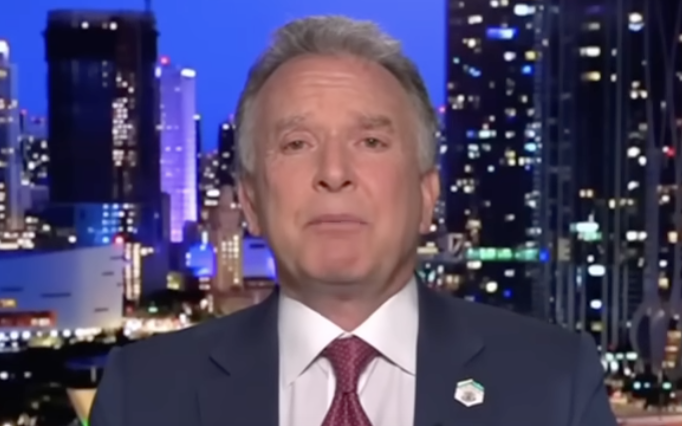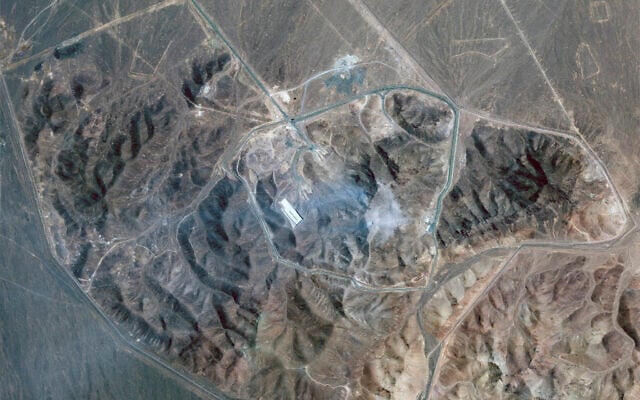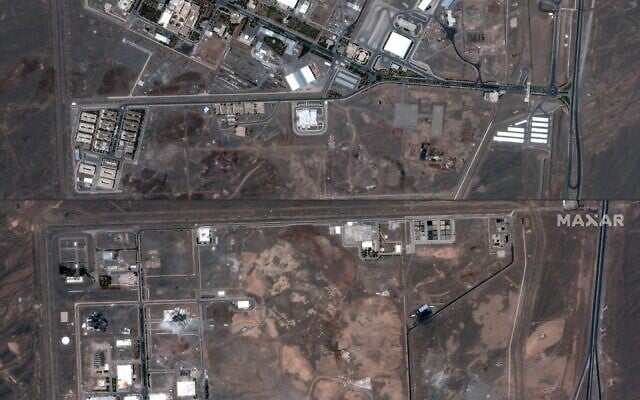



US special envoy to the Middle East Steve Witkoff reiterated Wednesday his belief that additional countries will join the Abraham Accords, which normalized ties between Israel and several Muslim nations.
Witkoff also said he hopes that there will be a comprehensive peace agreement with Iran, in the wake of the 12-day war with Israel that ended on Tuesday with US-brokered ceasefire that the envoy played a key role in achieving.
“We think we will have some pretty big announcements on countries that are coming into the Abraham Accords,” he told CNBC in an interview. “One of the president’s key objectives is that the Abraham Accords be expanded and more countries come into it, and we are working on that.”
Signed at the White House on September 15, 2020, under the first Trump administration, the Abraham Accords normalized ties between Israel and the United Arab Emirates, along with Bahrain. Morocco later also joined the accords.
“We are hoping for normalization across an array of countries, maybe that people would never have contemplated coming in before,” he said. “We’re excited for that prospect. That would also be a stabilizer in the Middle East.”
Both Witkoff and US President Donald Trump have repeatedly expressed their interest and expectation that other countries will join the accords.
Witkoff made a similar prediction at an Israel Independence Day event last month.
“We think [we] will have some, or a lot of announcements, very, very shortly, which we hope will yield great progress by next year,” he said at the time.
Just over a week after that, US President Donald Trump declared it was his “dream” for Saudi Arabia to join the Abraham Accords.
“It’s my fervent hope, wish and even my dream that Saudi Arabia… will soon be joining the Abraham Accords,” Trump said in a foreign policy speech at an investment summit in Riyadh on the first day of a Middle East visit that also included stops in Qatar and the United Arab Emirates.
The next day, he met with Syria’s President Ahmed al-Sharaa and urged him to join the accords.
Qatar has already been mediating talks between Israel and Syria on the possibility of the new regime joining the accords, Hebrew media reported at the time. Sharaa himself has said that Abu Dhabi was acting as an intermediary between Israel and Syria, which have no official relations.
Witkoff also addressed the prospects of a nuclear agreement with Iran in the wake of the war with Israel.
Nuclear enrichment and weaponization by Iran are red lines for the United States, Witkoff told CNBC, adding that he is “hopeful for a comprehensive peace agreement” with Tehran.
“We were hopeful when we first started negotiations, it didn’t quite work out that way, but today we are hopeful,” he said of talks between the US and Iran over the latter’s nuclear research program. “The signs are there.”
The US, he said, is having “conversations” and there are “multiple interlocutors who are reaching out to us.”
“I think they’re ready, that’s my strong sense,” Witkoff said of the Iranians.
Iranian uranium enrichment is, he stressed, “the red line, and beyond enrichment, weaponization is the red line.”
“We can’t have weaponization,” Witkoff continued. “That will destabilize the entire region. Everyone will then need a bomb and we just can’t have that.”
He also rejected a report by the US Defense Intelligence Agency that found the Israeli and US bombings of Iranian nuclear sites only set back the development program by months.
“All the different sources by which you might get to a weapon have been eradicated,” he said.
“The conversation now with Iran is going to be how do we rebuild a better civil nuclear program for you that is non-enrichable,” Witkoff added, with “robust observation” to ensure there is no enrichment.
“The Iranians accept that, and we’ve talked about it,” he said.
Witkoff repeatedly referred to a “peace agreement” rather than a pact that only deals with Iran’s nuclear program.
A peace agreement with Iran will bring a “renaissance” for the region, he predicted, and could also have influence beyond the region in other conflicts — such as between Russia and Ukraine — inspiring people to end fighting.
Witkoff’s remarks matched those he gave to Fox News in a Wednesday interview when he also spoke of the US seeking a peace deal with Iran.
Trump said the same day that US and Iranian negotiators will meet for talks next week while noting that there was no need to focus on the nuclear program, as it had been destroyed.
The US and Iran had engaged in several rounds of negotiations to reach an agreement on Tehran’s nuclear program, but the talks had stalled before Israel launched airstrikes on June 13, targeting Iran’s top military leaders, nuclear scientists, uranium enrichment sites and ballistic missile program.
Israel said the campaign was necessary to prevent the Islamic Republic from realizing its declared plan to destroy the Jewish state. On June 22, the US struck key Iranian nuclear facilities at Natanz, Fordo and Isfahan.
Iran has consistently denied seeking to acquire nuclear weapons. However, it has enriched uranium to levels that have no peaceful application, has obstructed international inspectors from checking its nuclear facilities, and expanded its ballistic missile capabilities. Israel said Tehran had recently taken steps toward weaponization.
Iran retaliated for Israel’s attacks by launching some 550 ballistic missiles and 1,000 drones at Israel. Iran’s missile attacks killed 28 people and wounded thousands in Israel, according to health officials and hospitals.
Some of the missiles hit apartment buildings, a university and a hospital, causing heavy damage.


